What comes to mind when we hear the word socio-scientific issue?
"Issue" means a topic or discussion related to a problem, "socio" means social
or societal, and "scientific" means scientifically.
So
that when we hear about socio-scientific issues, we can interpret them as a
social problems that can be connected in scientific context. HOTS skills to support SSI,
How Socio-Scientific Issue is applied in lesson? Journal 1: Nida, S., Rahayu, S., & Eilks, I. (2020). A survey of Indonesian
science teachers’ experience and perceptions toward socio-scientific
issues-based science education. Education Sciences, 10(2), 39.
Background: Science
education is relevant to the focus on improving scientific literacy among
students. However, the context to be included in learning is still being
debated. There are 2 visions of scientific literacy described by Robert, namely
(1) understanding science concepts for further application, and (2) contextual
science learning. To the results of the PISA, the scientific literacy of
Indonesian students is low, therefore collaboration is needed for student
involvement in socio-scientific issues so that they are prepared to face the
future world of modern science.
Discussion: There are still teachers who are not familiar with SSI, and some teachers have implemented SSI in classroom learning. For teachers, science content (conceptually) is still the basic goal so it doesn't really touch on science issues in society. The obstacles are limited student skills, lack of teacher knowledge and expertise, the usual curriculum, lack of facilities, and limited time.
There are several competency suggestions from teachers for SSI-based learning such as communication, problem solving, critical thinking, scientific inquiry skills, social and environmental awareness skills, literacy, higher order thinking skills, creativity, and collaboration skills. After the interview process and introduction of SSI in learning, many teachers are interested in implementing it in classroom learning.
Based on the results of journal 1 it can be seen that socio-scientific issues can be used to develop the competence of teachers and students, SSI can bring social issues closer to science so that sustainable problem solving is obtained.Journal 2: Rahayu, S. (2019, June). Socio-scientific issues (SSI) in chemistry
education: Enhancing both students’ chemical literacy & transferable
skills. In Journal of Physics: Conference Series (Vol. 1227, No. 1, p. 012008). IOP Publishing.
Background: Understanding chemistry helps in understanding and explaning phenomena that exist in life around us, understanding how life is, how to solve everydat problems, and how to act as humans. As the world changes, more dan more problems arise which globally become questions that require answer to the solutions that should be provided. These societal issues involve science (including chemistry) and also consider social, political, economic, and ethical issues. Chemistry leads to a future career. However, there are challenges in the implementation where most of the chemistry education process is still focused on increasing knowledge and understanding of chemical comcepts rather than developing skills including problem solving, critical thinking, communication, teamwork, time management, and independence.
Discussion:
The results showed that over 60% of the respondents agreed that chemistry graduates should have all skills included in the questionnaire. Individuals who are literate in chemistry must understand (1) the general scientific notion that chemistry contributes to other knowledge, (2) the characteristics of chemistry include understanding macro, sub-micro, and symbolic phenomena, (3) context in chemistry related to social, (4) high-order learning skills, (4) affective aspects.
Socio-scientific issues (SSI) involve the purposive use of scientific (chemistry) topics in the instruction that obligate students to participate in dialogue, discussion, and debate. In the process of discussion, debate, or dialogue on the SSI issues, the students use and develop some capabilities/skills and affective dimensions.
A chemistry teacher has competencies of subject matter and pedagogical content knowledge (PCK) and multidisciplinary life experiences. The student, then, investigates personally relevant socio-scientific issues and discusses, debate, or construct argumen/explanation to solve the issues. Through some phase of learning the student could use and develop: knowledge of the subject matter & natur of science (NOS), life experience, some tranferable skills, and affective dimension. Examples of SSI related chemistry developed here are alcohol, MSG, sodium benzoate, acidification, DDT and acid rain.
Journal 3: Zidny, R., & Eilks, I. (2020). Integrating perspectives from
indigenous knowledge and Western science in secondary and higher
chemistry learning to contribute to sustainability education. Sustainable Chemistry and Pharmacy, 16, 100229.
Background: Modern chemistry teaching is prepared for participation in society, including a reflective attitude towards the environment. In international education policies such as those implemented in the British national curriculum and AAAS in the UK, social issues in learning refer to sustainability and green chemistry. The SSI approach is suggested to make chemistry learning more authentic, interesting and relevant to students. Issues included in the content must consider socio-cultural and geographical aspects.
Discussion: The application of SSI in Indonesia can be adapted to the cultural conditions of the community and its geography. For example, it can raise the concept of local wisdom where Indonesia's local cultural potential is very diverse, this can also be related to ethnochemistry.
Learning chemistry with the SSI approach can broaden students' insights and show that chemistry is related to other knowledge, especially in the context of global and sustainable issues. Based on the results of 3 reviews, it can be concluded that the socio-science issue approach in chemistry learning is very relevant and able to support the chemistry learning process which requires representative human elements, macro, sub-micro, and symbolic. In addition, SSI can improve the 21st century skills of teachers and students. SSI can be used as a multi-disciplinary approach, which can connect one science to another (especially chemistry).





